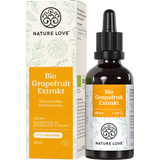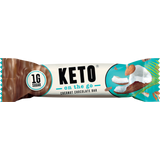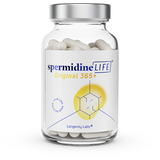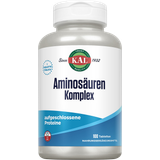Why stretching doesn't make you a better runner - and what it does do
You see them in streets and parks all over the world, leaning against trees or limbering up on benches: It seems that most runners just love to stretch their muscles.
However, whether this should be done before or after a workout is still hotly debated in running circles - some believe it is the best way to warm up cold muscles, while others insist that stretching is done when the muscles are already warm that brings the most benefits.
But there is also a third possibility, namely that everyone gets it wrong. At least that is what the new analysis suggests: Stretching may not have any effect on running performance at all.
The right and the wrong information
Running has grown in popularity again in recent years. No wonder, it is easy and relatively inexpensive to perform. However, many people who are new to running do not want to pay for expensive trainers or advice and instead rely on a hodgepodge of information that they can usually find online. Of course, this a breeding ground for misinformation.
Scientists from the University of California at Santa Barbara analysed 70 studies of running and performance. From this, they derived tips on how runners can improve their performance. Some of the results they have come across are surprising, while others confirm what many runners already know.
Now let's look at the key tips and guidelines the scientists derived from their study:
Use cooling to improve endurance
This is one of the surprising guidelines, although at first glance it makes little sense to most runners. In fact, you should cool down before a run instead of warming up. Cooling down before the run can actually have a positive impact on long-distance running and performance.
You should never freeze your muscles, but if you put ice on the skin, for example on the neck, you can train harder because the body thinks its core temperature is lower. This type of cooling basically creates a buffer that allows the athlete's body to perform better for longer before it begins to overheat. This trick only works for long-distance running, not for sprinting.
Skip stretching if you don't have any injuries
Stretching has become almost an accomplishment in itself for anyone who regularly exercises, but many probably still often wonder what we are doing it for. While it can help improve flexibility, scientific analysis suggests that you're wasting your time stretching in hopes of getting a performance boost while running. From a performance standpoint, there is no benefit. Stretching won't make you faster or run better. Many professional trainers believe that injuries are more likely to occur when the limbs are not stretched. However, it actually appears that stretching only helps when you're recovering from an injury, as it helps muscle fibres stretch as they heal.
Jump for speed when sprinting
Professional sprinters already know this, but plyometric exercises or jump training helps the muscles to exert maximum strength in a short time. The analysis now shows that a training program lasting 10 weeks, at least 15 units per week with 80 high-intensity jumps, can increase your sprint speed. Jumping gives your muscles the ability to suddenly be explosive and activates them faster.
Recovery is crucial
For most of us, a day off could mean relaxing in front of the television. For those who want to keep improving their mileage with training instead, there is bad - but interesting - news about this.
A study was performed in which there was a very high number of cross-country skiers who competed and trained. They told half of them to enjoy the next few days in the cabin and the other half did light jogging or a workout on the treadmill. The next day, those who had done the light training were absolutely exhausted compared to those who sat in the hut. That makes sense because the athletes who did not train were more relaxed. The result was absolutely clear: If the training is reduced before a competition, it can bring enormous increases in performance. A reduction in the training volume two weeks before a competition resulted in an average increase in performance of 41 - 60%. Research clearly shows that a large increase in performance is then possible.
A purposeful attitude
This is often the secret ingredient that many people are missing. The point is to keep an eye on the price throughout the suffering. As soon as you forget what you are going through the hardships for, it's all over. There are a lot of physical things you can do, such as buying the perfect equipment, but if you don't have the right mental state you will never perform at your best.
For those just starting out, it's a good idea to set small, achievable goals that will help you exert yourself a little more as you run. So don't think about the finish line on a 10-kilometre run, think about a tree up ahead that you can run to, and when you get there, pick a new target point, and so on. In a race, you can motivate yourself by choosing another running with whom you can try to keep up. This can make you run a lot faster than you ever could in training.
Latest reviews
-
 4.6 (7)
4.6 (7)Nature Love Organic Grapefruit Extract, 50 ml
- Gentle cold extraction
- Made from grapefruit seeds & peels
- One bottle lasts for 3 weeks
£15.25 (£305.00 / l)Delivery by May 13
-
 4.3 (3)
4.3 (3)Ketofabrik Chocolate Coconut Bar, 1 bar
- 1g sugar per bar
- Reduced sugar alternative
- 3.6g net carbs per bar
£1.50Not available at the moment
-
 4.7 (11)
4.7 (11)Longevity Labs spermidineLIFE® Original 365+, 60 capsules
- Approved EU wide as a novel food
- From Austria
- No artificial dyes or flavours
£63.50Delivery by April 25
-
 £37.00 (£264.29 / kg)
£37.00 (£264.29 / kg)Delivery by April 25
Magazine Articles:
Discover VitalAbo :
-
Great Britain: Free standard delivery from £49.90
-
Free
returns -
We operate in a
climate-conscious manner. More than 7.800 products

